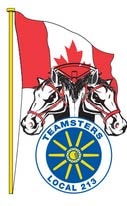Teamsters move crews and materials using a pickup truck to a rock truck to a nine axle lowboy. There is no sector of industry, be it heavy construction, agriculture, manufacturing, road building, or oil and gas, which does not require the services of teamsters. Teamsters drive a wide range of motorized vehicles in a safe and skillful manner.
Responsibilities
- Haul people & material
- Schedule deliveries & shipments
- Generate, pack and ship orders, and receive shipments
- Maintain inventory & process product returns
- Operate computer systems
- Operate powered & non-powered material handling equipment
- Work with storage systems and handle and store products
- Utility drivers must be highly skilled in operating all types of tractor trailer units
What You’ll Need
Entrance Requirements
Online Courses:
H2S, WHMIS 2015 (Workplace Hazardous Material Identification
System), Pipeline Construction Safety Training (PCST), Professional Drivers Improvement Course (PDIC),
Transportation of Dangerous Goods (TDG), Construction Safety Training System (CSTS), and more.
Classroom: Pipeline & Heavy Construction Warehouse program (5 days)
Equipment Training (as required): Front End Loader, Boom Truck, Rock Truck
Key Skills & Attributes
(technical training and on the job)
- Communication skills, reading & numeracy skills
- Problem-solving & critical thinking skills
- Manual dexterity
- Ability to work independently
- Ability to get along with customers & co-workers
Trade Card Info Sheets
Start Building Your Skills
Do you have the foundational skills to succeed in the construction building trades? Sign up/sign in for FREE learning resources, tutorials and more to get started and through a career in construction.
Sign Up Learn MoreHourly Pay
$17 – $35*/hr *2020 ratesProjected Growth
(CONSTRUCTION LABOUR FORCE)
10% over the decade
compared to 2020*
*BuildForce Canada
You are a critical thinker.
You enjoy working independently.
You take a methodical approach to work.
Did You Know?
Businesses of all sizes depend on teamsters for the fast and safe delivery of products across the country.

